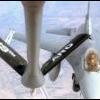"The best" fluctuates as contracts change. Also part of what is considered "the best" is where your seniority will be for the duration of your expected career, and in what base/equipment/seat. There is no perfect contract at any airline. A contract governs everything from pay, work rules, profit sharing, sick, vacation, trip construction, medical, insurance, scope, hotels, and just about everything else that can affect your pay/QOL/time off. Regarding seniority, movement is dependent on 2 things: growth and retirements. Only one of those is certain: retirements. Growth can be halted overnight (or be negative if planes are parked overnight if say a 9/11, recession, or fuel price spike happens). Airlines are a for profit company...when planes get parked overnight, pilots are on the street (furloughed). So financial health of a company also matters in that equation, to some degree.
Delta has hired around 5k pilots since 2014. A lot of those are younger guys, and you'll never be senior to them if you are getting in now. UA has hired less than that, and AA has hired even less. Also, AA has hired a lot of Envoy flows who waited 15-18 years to flow, and they will age out sooner than many off the street hires. In other words, a lot of their hires have been older than the guys Delta has hired. The result of that is AA has the most retirements over the next 10-15 years, so movement there will be the most rapid. United is close behind them with retirements. Then comes Delta, then the rest (I think FDX, then UPS). SWA/JB/the others all have a lot fewer retirements. This means slower movement...although likely more growth at JB/Spirit/Frontier which kind of makes up for the lack of retirements, assuming the growth isn't interrupted. Also of note, Delta JVs out a lot of their wide body flying, so AA/UA have a lot more own metal wide body flying, thus more widebodies, thus more lucrative WB jobs in both seats, which will affect relative seniority, even on the NB side. A lot of guys will choose WB FO over NB CA.
Overall, I'd say Delta's contract is the best, followed by United, then AA. But each has strengths and weaknesses. Delta's profit sharing is insane (16.6% for 2019...extra 2 months of pay). Their sick accrual is also leaps and bounds above everyone else. United has airport reserve (fk that). AA has lots of weak points. But all 3 are in negotiations, and those things are all on the table and could shift. Right now Doug Parker at AA told the pilots they have $150mil to make whatever improvements they want...that's chump change for 15,500 pilots given how far behind their contract is. United has Scott Kirby at the helm hellbent on more/larger RJs. Delta mgmt just filed for mediation, seemingly far apart with DALPA's asks. Right now, the financials of Delta support the most gains (or at least keeping the best contract), followed by UAL, followed by YUGELY debt-ridden AA. Doug says he will pay all that debt down. I'll believe it when I see it...but I doubt he gives AA pilots a contract anywhere near Delta's. But their seniority movement and bases may work better for people who live in say Dallas Charlotte or Miami.
All 3 have fairly quick upgrades (albeit in less desirable bases), unheard of seniority movement/hiring/retirements, and are all likely going to trade off who "the best" is over the next 10/20/30 years. None has ever stayed "the best" forever.
Southwest and JB have never furloughed, never gone through a bankruptcy, and have always remained profitable, even when the legacies hemorrhaged money, furloughed, went through BK, and all came out of BK with garbage concessionary contracts.
The pecking order is this: go to who calls first. If 2 or 3 call, go to whichever one has a domicile you want to live at. If you live in a domicile of another airline you want to work at, keep applying there. Commuting to the airline with the best contract is worse than driving to work under the worst contract.
For anyone considering entering the airline industry, or anyone who is in the airline industry and hasn't read it, I urge you to read "Hard Landing." It gives a nice history of the industry, all the players, and how all the airlines came to be. It gives a good history of who the biggest and best airline has been throughout history.
In closing, there is a pecking order, but it changes. You won't know where you will end up in that pecking order until you retire. In 20-30 years from now when you retire from the airlines, the landscape will have changed tremendously, as will the pecking order. Best advice: make the best decision for you and your family now, sock money away and live like an FO even when you upgrade, hold on, and enjoy the ride. The only constant in the airlines is change. A lot of the bros getting into the industry in the last 5ish years only know the good times. It will not be good forever. When it isn't good, the pecking order of which airlines are the best tends to change. Delta is printing money right now with unprecedented profitability. But if you got hired there in the early 90s you got furloughed, went through a bankruptcy, lost a pension, took a few pay cuts, and likely never saw the left seat. But if you were hired there 5 years ago, you would be a NB Captain or WB FO today.
TL;DR:
Best contracts: Delta, United, American
Best movement ahead: American, United, Delta
Best financial health: Delta, United, American





